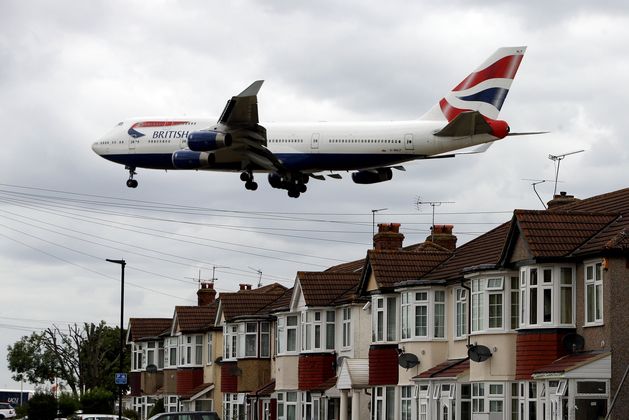British Airways and Virgin Atlantic are among carriers who have already been forced to ground planes and postpone entire routes as a result of a shortage of Rolls Royce Trent 1000 engines.
The situation is resulting in air fares soaring as competition between airlines narrows, and insiders warn that flight cancellations linked to supply chain issues will hit their peak next year.
In one instance uncovered by The Independent, the cost of a hand-baggage only British Airways ticket on the Heathrow-Cape Town route on 11 April now sits at £2,922 return – nearly three times the price on BA for the same dates to and from Johannesburg.
Last month BA cancelled the resumption of daily flights between Heathrow and Kuala Lumpur this winter, removing 200,000 seats from the available capacity between the UK and Southeast Asia, in a move it blamed on “delays to the delivery of engines and parts from Rolls-Royce”.
Virgin Atlantic also blamed Rolls Royce shortages after it deferred a planned resumption of London flights to Accra in Ghana and Israel’s Tel Aviv until next winter, with its Cape Town schedule also set to pause a month earlier than planned.
Paul Charles, former director of communications at Virgin Atlantic and now CEO at The PC Agency, said: “The engine issues have caused massive problems for airlines and consumers.
“Airline planning teams have had to rewrite their rulebooks on how they use their fleet on the most popular destinations that they need to protect – and gamble on which routes will pay the price and be deleted from their networks.
“For consumers, prices will continue to rise – 2025 will see record fares on many routes. If you want to go abroad next year, be prepared to pay for it is the message.”
Rolls-Royce Trent 1000 engines fitted to relatively older Boeing 787s are now at the point when many components need to be replaced according to the stringent rules designed to ensure planes are safe.
But industry insiders say that, at the height of the pandemic, many manufacturers scaled back their operations and made staff redundant as demand for their precision-engineered components evaporated.
Warning that “all of the companies in our industry are suffering from this”, a spokesperson for Rolls-Royce said: “We continue to work with all our customers to minimise the impact of the limited availability of spares parts.
“We have been taking decisive action and moving quickly to prioritise the resources needed to reduce the impact created by the current industry-wide supply chain constraints, it’s the highest priority for our Civil Aerospace division.”
Inside the PSNI Dog Unit
Nick Cunningham, an aerospace and defence analyst at Agency Partners, previously told The Independent that the supply chain issues could take years to resolve.
“It’s a very deep and abiding issue that’s going to take a long time to fix, because it’s going to take a long time to train up enough people, and then you need to hang on to them,” he said. “That starts with training kids at college. So that gives you an idea of the time scale involved. It’s going to take years.”
He also noted that the disruptions are not limited to Rolls-Royce engines but affect almost every aspect of modern aerospace production.
Robert Boyle, a former director of strategy at BA’s parent company IAG said that airlines are frustrated and “struggling with grounded aircraft”.
But in a nod to prices now soaring to higher than pre-pandemic levels, he also noted that the lack of competition was serving to drive passenger fares up: “Aviation profitability is heavily driven by supply/demand balances and the shortages will help support overall pricing.”
Rob Burgess, founder of the Head for Points frequent-flyer website, was one of an estimated 15,000 passengers affected by the early termination of Virgin’s flights from Heathrow to Cape Town.
Mr Burgess warned that the axed flights to South Africa over next Easter will cause significant problems, “falling during school holidays and over a period with two bank holidays”.
The Rolls-Royce spokesperson added: “Over the last 12 months we’ve introduced a number of initiatives to reduce the impact on our customers. Our Trent 1000 Task Force has been working at pace to deliver these improvements, drawing on our world-class engineering and technology capability.
“These changes are already having a positive impact. So far this year, we’ve increased Trent 1000 supply chain output by a third, making more components available and minimising the time engines spend in our Maintenance, Repair and Overhaul (MRO) centres.
“We’re confident that these bold changes coupled with our long-term investment plans will provide continuous improvement for our customers.”

